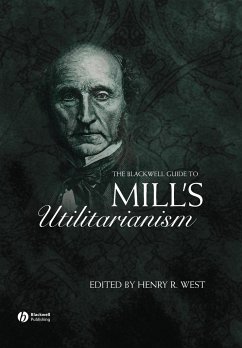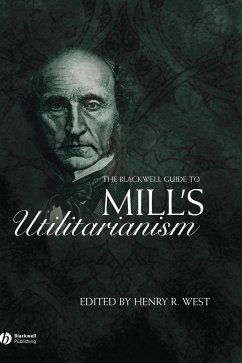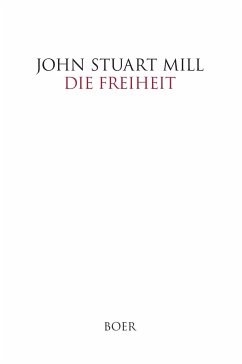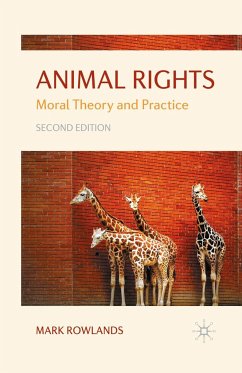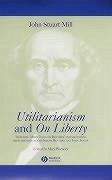
Utilitarianism and on Liberty
Including Mill's 'Essay on Bentham' and Selections from the Writings of Jeremy Bentham and John Austin
Herausgeber: Warnock, Mary
Versandkostenfrei!
Versandfertig in über 4 Wochen
139,99 €
inkl. MwSt.
Weitere Ausgaben:

PAYBACK Punkte
70 °P sammeln!
This book combines John Stuart Mill's key writings, Utilitarianism, On Liberty, and 'Essay on Bentham', with formative selections from Mill's greatest influences, Jeremy Bentham and John Austin, and a discerning introduction written by the renowned ethics scholar Mary Warnock. This combination provides a thorough and perspicuous view of Mill's thought. An extensive bibliography of the best scholarship on Mill, Bentham, and Utilitarianism makes this book even more useful for students. This volume affords indispensable insight from - and into - one of the most profound and influential thinkers i...
This book combines John Stuart Mill's key writings, Utilitarianism, On Liberty, and 'Essay on Bentham', with formative selections from Mill's greatest influences, Jeremy Bentham and John Austin, and a discerning introduction written by the renowned ethics scholar Mary Warnock. This combination provides a thorough and perspicuous view of Mill's thought. An extensive bibliography of the best scholarship on Mill, Bentham, and Utilitarianism makes this book even more useful for students. This volume affords indispensable insight from - and into - one of the most profound and influential thinkers in Western philosophy.



